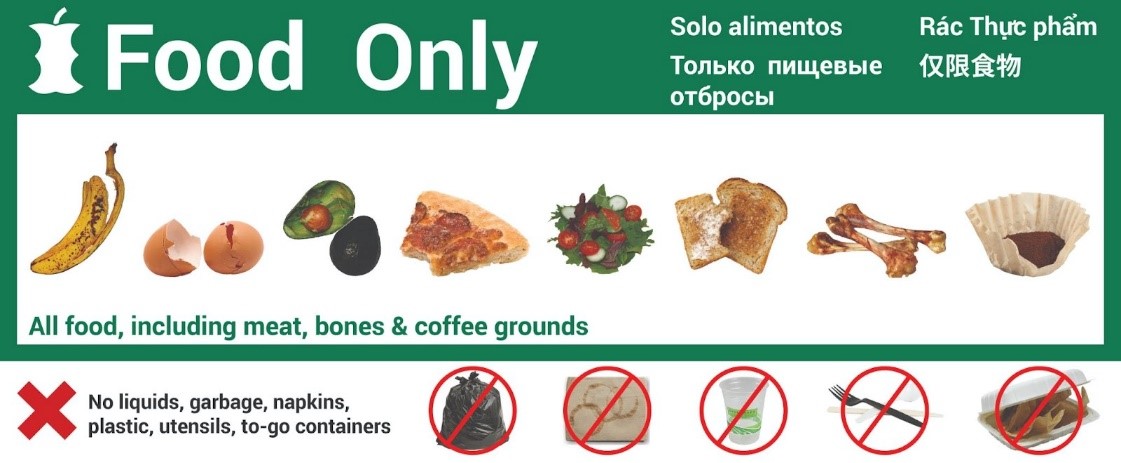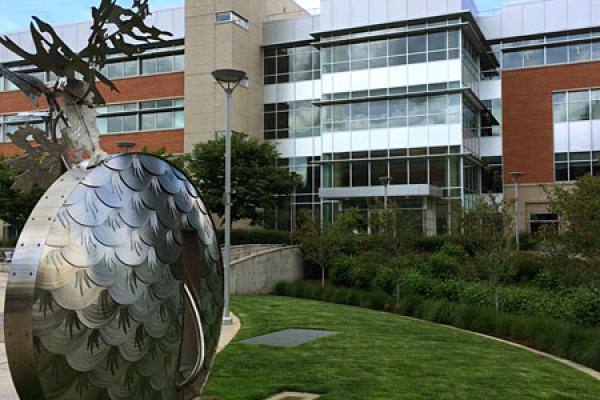| 1 |
Set up service Franchised waste haulers in the Urban areas provide food scraps collection service. In many cities and within the unincorporated area there is no extra cost for the service. Contact your waste hauler to learn more about service options (size and frequency) and to start food only service. We can also help you initiate service; identify rates and when/if your business is subject to local requirements. |
| 2 |
Set up internal containers with label Outdoor containers
Indoor containers Place containers where food is prepped and plates are scraped. Small containers work best since food waste is heavy. They’re easier to lift, carry, empty and clean. We provide a limited supply of free containers in a variety of sizes. 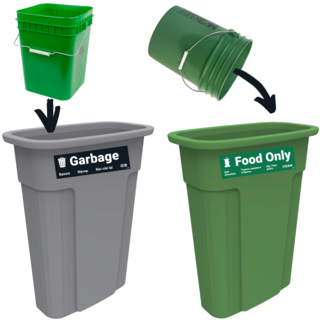
Posters and stickers
These labels show staff what should and shouldn’t go in each container, and are part of criteria for meeting local requirements. Educational posters are especially important since the guidelines for composting at home are different than at work, and an on-the-spot reminder is helpful. Always use posters and stickers provided by your local waste, since guidelines outside of the tri-county metro area are different. |
| 3 |
Train staff Before you start separating food waste, make sure that staff understands what goes in, where to empty the containers, and how to keep containers clean. We can help with this. Invite our staff during a huddle or have staff watch these training videos. Trainings are available in English and Spanish. What goes in, what stays out Label all waste containers with stickers and waste areas with posters. Business compost is food only. No napkins, paper products, or other non-food items. Conduct occasional spot checks to make sure non-food items aren’t going into the compost bin. Correct issues before they become a habit.
Lift safely Compost containers can get heavy quickly. Don’t fill containers to the top. This is true for outdoor containers too. When emptying internal containers into a dumpster or large roll cart, it's best to have two people lift and dump the container, especially with the larger 23-gallon slim container. Clean containers Containers should be cleaned regularly to prevent odors and fruit flies. For sanitation reasons, containers must be cleaned out at the dump sink, not the food prep sinks. Five-gallon buckets can go in many dishwashers for easy cleaning. For larger indoor containers, use soap and water and make sure to dispose of the rinse water in a sanitary sewer drain (not storm drains). |
| 4 |
Start separating food scraps Incorporate the new program details into your garbage tasks and general workflow. Remember, the program is for food only: meat, dairy, fish, bread, pasta, coffee grounds, peels, shells, bones, spoiled food, and plate scrapings. Do NOT include liquids, paper products, packaging, or anything that is not food. Compostable packaging and utensils are not allowed.
|
Questions?
We are here to help. Contact us at 503-742-4458 or email greenbiz@clackamas.us
Additional Tips
Find out more details on bags and liners, avoiding odors and pests, front-of-house compost, costs and more on our FAQ page.
More information about...
Why collect your food scraps?
- Reduce food costs by tracking food waste caused by over-ordering and over-production.
- Keep food waste from the landfill, preventing greenhouse gas pollution.
- Support local production of electricity and fertilizer.
- Build stronger connections with like-minded customers.
- Promote composting as a full-circle system that creates food from food within our communities.
- Attract and retain employees by implementing sustainable practices.
Contact us
Our Sustainability Advisors can provide free personalized assistance, staff training, internal collection containers, signs and stickers to help integrate this program into your daily operations. Email us at lis@clackamas.us or call 503-742-4458.
 Translate
Translate






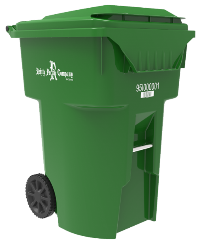 Your garbage company will provide compost containers for your main waste collection area. These may be roll carts, dumpsters, or a compactor. All containers – food scraps, recycling, and garbage – should be
Your garbage company will provide compost containers for your main waste collection area. These may be roll carts, dumpsters, or a compactor. All containers – food scraps, recycling, and garbage – should be 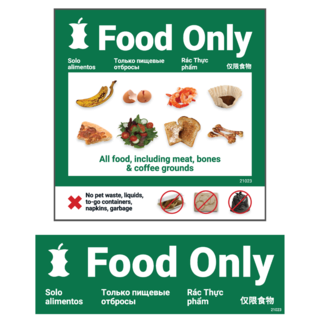 Use our
Use our 